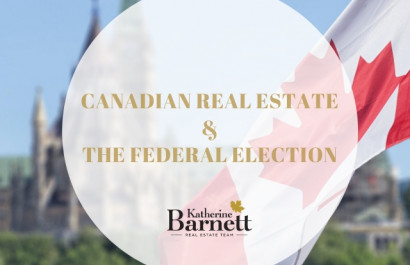Elections tend to unearth the hot ticket items that have Canadians worrying. A major cause of worry for Canadians today is housing. People who still rent are more stressed out as affordability continues to pose a challenge. This is for both rent and the idea of owning a home.
In fact, 93 percent who rent are experiencing a negative impact on their lives due to housing worries. But homeowners aren’t that much far behind on the worry scale with 80 percent agreeing the cost of buying a home is rising much faster than their incomes.
Now that the Liberals have won a minority government, how will it affect Canadian real estate? Here we look at the promises and how the Liberals’ 2015 housing platform fared, to get a better idea of what might happen.
The Promises
So, what has the Prime Minister actually promised? Here is what the Liberals are planning:
- A first-time homebuyer incentive discount of up to 10 percent off the purchase price for qualifying homes. This sounds good when prices in cities like Vancouver are above the million marks.
- A foreign homebuyers’ tax much like the one in B.C. to crack down on financial crime that has loomed large in the real estate sector.
- Accessible and affordable housing for veterans.
- Infrastructure investments that might positively impact Indigenous communities.
- 100,000 affordable homes over a decade.
- From the Liberal website, they say they will invest close to $20 billion in social infrastructure over 10 years.
- The investment will be significant to help provide affordable housing as well as seniors facilities. The research will be done to determine if skyrocketing prices in cities like Toronto and Vancouver are a result of speculation.
Changes to GST rebates on new capital investments in affordable rental housing are estimated to generate $125 million per year in tax incentives. This is intended to help increase the affordable rental supply for housing across the country.
Other incentives to make purchasing a home more affordable include a one-per-cent federal tax on vacant properties owned by non-Canadians who live abroad. This worked in B.C. but in Toronto, the rate of foreign purchases is quite low. So, whether or not this will make a difference remains to be seen.
The 2015 Promises
Let’s look at what the Liberal promises for 2015 achieved, to provide some insight into how housing might be affected following the 2019 election:
Mortgage Stress Test
The mortgage stress test was designed to calm the housing market and slow down runaway price growth. Apparently, this did help in reducing prices in the most out of control markets, but this policy has been criticized for being outdated, making home-ownership impossible for many.
First-Time Home Buyer Incentive
The FTHBI launched on September 2, 2019, to provide a way for homebuyers to have a smaller mortgage and lower payments. It uses a down payment top-up courtesy of the government, covering up to 10 per cent of a home’s price. Although just out of the gate, it will be more appealing to people house-hunting in smaller urban centres as opposed to big cities like Toronto or Vancouver, where 10 percent is a drop in the bucket.
Working Together
With a minority government, the question is, will all parties be able to play nice? For example, looking at what all parties promised regarding real estate, could efforts be made to work together?
As mentioned, with the Liberals’ plan to improve the First Time Home Buyer Incentive, could they consider the proposal by the Conservatives to extend the first-time maximum mortgage amortization period to 30 years? Could they consider the Conservatives’ suggestions surrounding the stress test? Maybe they could look at the NDP’s plan to build more affordable housing units?
Get rid of the federal sales tax on rental space construction? Would this work with the Liberals’ $55-billion, 10-year National Housing Strategy (NHS) headed up by the Canada Mortgage and Housing Corporation (CMHC)? This also includes building affordable housing with the goal of building as many as 125,000 new units to help more than half a million families be relieved from housing need. The answer is, probably not. But they might try.
It’s only day one following the election, and it really is too early to call how promises, including those surrounding Canadian real estate, will affect us in the months and years to come.



